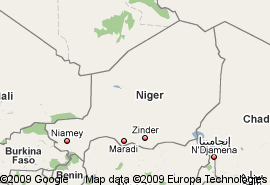 It is a good week for governance issues on the African continent. The government of Niger may disagree of course since the West African nation with a population of over 15 million, was suspended as a member of the Economic Community of West African States (ECOWAS) on October 20.
It is a good week for governance issues on the African continent. The government of Niger may disagree of course since the West African nation with a population of over 15 million, was suspended as a member of the Economic Community of West African States (ECOWAS) on October 20.
An ECOWAS spokesperson said:
The holding of the elections today in total disregard of the authority of ECOWAS Heads of State and government is a clear move by the authorities in Niger to further entrench the constitutional illegality currently prevailing in the country.
That statement speaks volumes and challenges one of the most commonly held and oft perpetuated myths about Africa and African politics – that we do not or cannot stand up for democracy and good governance without external intervention. Maybe in the past, not so now. On a very ordinary level, I noticed on Nigerian independence day that every single Nigerian friend of mine, regardless of geographical location, that posted a celebratory note about 49 years of independence also challenged Nigerian leaders to do better on corruption and democracy. Yes they were proud Nigerians but they also recognized past failings and called for a better way going forward. Read the full story on Niger’s suspension here.
ECOWAS is not punishing Niger, but rather handing out some tough love and challenging Nigerien leaders to raise the bar by simply restoring:
… constitutional legality.
Speaking of raising the bar, African leaders got a resounding wake up call from the Mo Ibrahim Foundation which announced on Monday that there will be no 2009 Ibrahim Prize Laureate or as Mo Ibrahim himself explained:
This year the Prize Committee has considered some credible candidates. However, after in-depth review, the Prize Committee could not select a winner.
The prize is awarded to a democratically elected former leader of an African nation. The field this year included Thabo Mbeki of South Africa and John Kufour, former president of Ghana. I have to say my initial reaction was one of suspicion that perhaps the Mo Ibrahim Foundation could not sustain the annual prize which awards US$5million over 10 years and US$200,000 annually for life thereafter to the winner.
Then I was plain annoyed that unlike the Nobel Peace Prize committee and its strategic award to Obama at a time when he can choose to escalate or end a war, the Foundation had missed an opportunity to continue to encourage leaders across the continent to do better by their nations and by their people. I am watching with interest what will become of the prize. I think this controversial decision has served to bring the award to the attention of a lot of people in Africa and out of Africa. That’s a good thing because the Foundation’s work is far more than the award for retired leaders, as Ibrahim explained, the Foundation:
… was established to stimulate debate around, and improve the quality of, African governance. Although there is much focus on the prize, the Foundation is engaged in many other activities to help improve governance.
If nothing else, the new and traditional media coverage generated shows clearly that Africa is taking governance seriously by taking action where necessary as ECOWAS did with Niger and raising the bar for what Africans expect of good leaders, as the Mo Ibrahim Foundation did. Yes there is still work to do, but we are on the right track.
Past recipients of the prize are Festus Mogae of Botswana and Joaquim Chissano of Mozambique. I still think it would have been nice to see a West African leader join the ranks but I appreciate the gauntlet that has been thrown down for African leaders – this prize must be earned with high standards.
There are those that argue the bar may be set so high no one will be able to get over it but I think it is human nature to reach higher for something good and to meet then exceed the challenge. This is a call to action for the next generation of African leaders, to raise the quality of leadership across the continent and with it the fortunes and governance of their nations.

